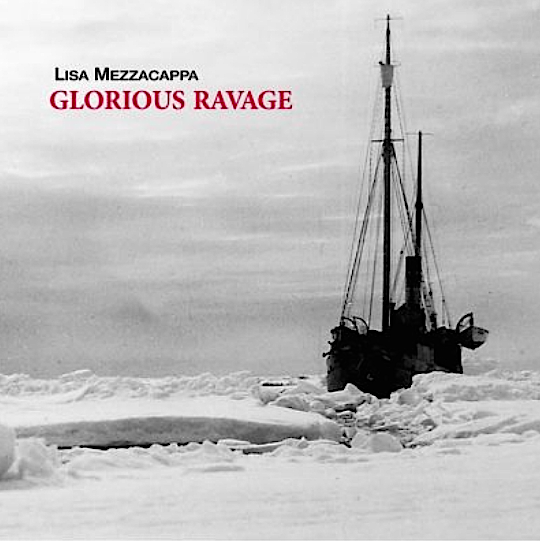 | Glorious Ravage New World Records New York. (2017) Lisa Mezzacappa's song cycle Glorious Ravage features extraordinary musicians from Northern and Southern California, (plus one exceptional Brooklynite). These master improvisers draw inspiration from contemporary classical music, avant-garde jazz, electronic music, European experimental music, punk and pop, world folk traditions and the music of the African Diaspora. Fay Victor, voice; Dina Maccabee, viola; Nicole Mitchell, Vinny Golia, Cory Wright, Kyle Bruckmann, winds; Darren Johnston, Michael Dessen, brass; Myra Melford, piano; John Finkbeiner, guitar; Mark Dresser, Lisa Mezzacappa, bass; Jordan Glenn, Kjell Nordeson, percussion; Tim Perkis, live electronics. |
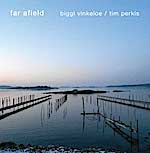 | Far Afield Artifact Recordings San Francisco. (2017) Long-time collaborators Biggi Vinkeloe (flutes, alto saxophone) and Tim Perkis (electronics) in studio-created compositions created from two sessions of improvisations recorded at Studio Fabriken, Gothenburg Sweden in 2008 and 2016. |
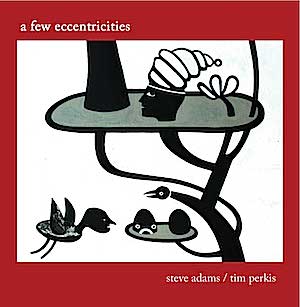 | A Few Eccentricities Artifact Recordings San Francisco. (2017) Saxophonist/flautist Steve Adams (ROVA Saxophone Quartet) and electronicist Tim Perkis (Fuzzybunny, The Hub), in a series of studio-created compositions, based on recorded improvisations and other creative strategies. |
 | JULY Edgetone Records San Francisco. (2017) Animals and Giraffes is an ongoing collaboration between writer/performer Claudia La Rocco and saxophonist/composer Phillip Greenlief. The project explores the intersection of text and sound, and features a changing roster featuring some of the finest bay area improvisers. With David Boyce - voice, tenor saxophone, electronics; Nava Dunkelman - percussion: Jeanie-Aprille Tang - electronics: Tara Sreekrishnan - piano; Evelyn Davis - prepared piano; Aurora Josephson - voice; Tim Perkis - electronics; Jon Raskin - baritone saxophone; John Shiurba - guitar; Karen Stackpole - gongs, percussion. |
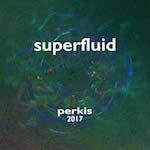 | Perkis: Superfluid Artifact Workshop Editions San Francisco. (2017) (Bandcamp) Superfluidity is the characteristic property of a fluid with zero viscosity which therefore flows without loss of kinetic energy. When stirred a superfluid forms cellular vortices that continue to rotate indefinitely. Some physicists speculate that spacetime itself may be a superfluid. Why is this track a half-hour long? It doesn't change that much -- the basic elements keep reappearing in different combinations. I found something interesting happened after listening to this for a while. It may not change much, but perhaps you will. Trance inducing! (for the composer, anyway). It takes a while to get to "the superfluid state". New instrument designed, music composed, piece performed, performance recorded, recording mangled by Perkis. Concept inspiration: miles davis, olivier messiaen, fred frith, sun ra, steve adams, john bischoff, kyle bruckmann. |
 | Bischoff Brown & Perkis: Transit Artifact Workshop Editions San Francisco. (2017) (Bandcamp) Veteran electronic musicians John Bischoff, Chris Brown and Tim Perkis play live electronic music recorded in 2014 by Phillip Perkins at Mills College and at the Active Music Festival at Duende in Oakland. Guest artist Mark Trayle joins the trio on one track. All four of these musicians were members of the pioneering live computer music ensemble The Hub, and represent a well-known West Coast school of live electronic music. In memory of Mark Trayle (1955-2015) |
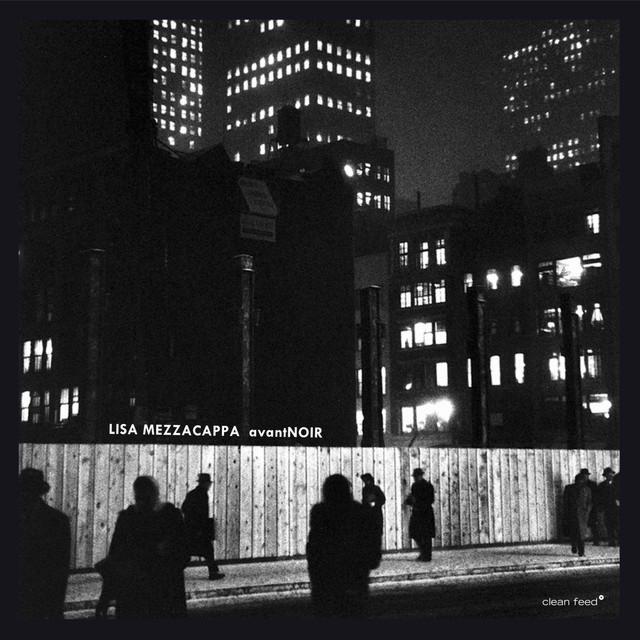 | Lisa Mezzacappa's AvantNOIR Cleanfeed Lisbon. (2017) Lisa Mezzacappa is a composer, bassist, bandleader and producer. AvantNOIR is a suite of compositions inspired by noir genre fiction – specifically Paul Auster’s abstract “soft-boiled” crime stories from his New York Trilogy of the 1980s, set in conversation with the West Coast hardboiled 1920s-era detective fiction of Dashiell Hammett. Lisa Mezzacappa, acoustic bass • Aaron Bennett, tenor saxophone • John Finkbeiner, electric guitar • Tim Perkis, electronics • William Winant, vibraphone, percussion, foley • Jordan Glenn, drums |
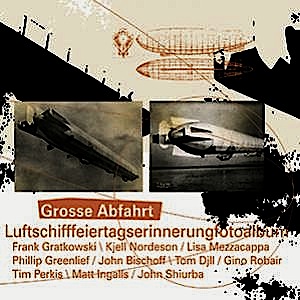 | Grosse Abfahrt: LUFTSCHIFFFEIERTAGSERINNERUNGFOTOALBUM Setola di Maiale Torino. (2016) Tom Djll wrote: "Grosse Abfahrt is the name I gave the project on the occasion of its first recording, in 2004. In German, it means ‘great departure’. The project is to take a core group of Bay Area musicians and put them together with out of town visitors. In this way the ‘composition’ involves as much the clashes and synchronicities in social dynamics as much as sonic ecosystems." The special European guest on this 2009 recording is, from Berlin, saxophonist Frank Gratkowski, and the local core players: Tom Djll - instigator - trumpet - electronics; Gino Robair - sounds in absentia; Tim Perkis - electronics; Matt Ingalls - clarinets - garden hose - violin; John Shiurba - guitar; are joined by Bay Area luminaries Kjell Nordeson - percussion; Lisa Mezzacappa - contrabass; Phillip Greenlief - alto sax - tenor sax - clarinet and John Bischoff - electronics. |
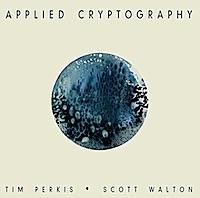 | Applied Cryptography Pfmentum Los Angeles. (2016) (Bandcamp) A duo project from veteran improvisors Scott Walton (piano) and Tim Perkis (electronics), this is a suite of by turns exquisitely quiet and spontaneous energetic compositions, recorded in 2014. Walton is perhaps better known for his in-demand contrabass playing, but his work as a classically trained and creative improvising pianist is not to be missed. Perkis plies his self-designed electronic improv instrument with his usual sensitivity and agility. |
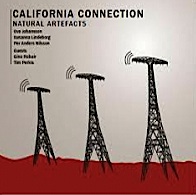 | California Connection LJ Records Gothenburg. (2014) Keyboardist Susanna Lindeborg and her Swedish band-mates form a bond with San Francisco Bay Area musicians, percussionist and electronics performer Gino Robair and electronics denizen Tim Perkis on this venturesome set recorded live at UC Berkeley and in the studio. As the Natural Artefacts band originated when Lindeborg and her longtime musical partner, saxophonist Ove Johansson collaborated with fellow countryman, composer and electronics ace Per Anders Nilsson. |
 | Janus Khalija Records Los Angeles. (2012) Electronic music compilation with tracks by Aaron Drake, fyndlit, Headboggle, Alex Christie, Clay Chaplin, Wyatt Penn Keusch, Riley Reasor, Scott Cazan, Mark Trayle, Greg Davis, Sophisticated Pills and Tim Perkis. Compiled by Wyatt Penn Keusch. (Cassette) |
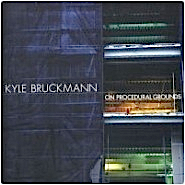 | On Procedural Grounds New World Records :: 80725-2 (2012) Kyle Bruckmann – oboe, electronics with: Compositions for improvising chamber ensembles with electronics. Cell Structure and Tarpit feature sfSound Group; the title piece features Wrack and Rova Saxophone Quartet with Tim Perkis and Gino Robair. Orgone Accelerator is a stereo realization of a work for 8-channel sound diffusion. SFSOUND (Matt Ingalls – clarinet, bass clarinet; John Ingle – alto saxophone; Gino Robair – prepared piano: Benjamin Kreith – violin: Tara Flandreau – viola; Monica Scott – cello; Kjell Nordeson – percussion) WRACK (Tim Daisy – percussion; Anton Hatwich – bass; Jen Clare Paulson – viola; Jason Stein – bass clarinet) ROVA SAXOPHONE QUARTET (Bruce Ackley – soprano; Steve Adams – alto; Larry Ochs – tenor; Jon Raskin – baritone) and Tim Perkis & Gino Robair – live electronics |
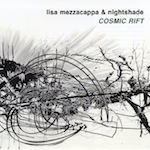 | Lisa Mezzacappa and NIGHTSHADE Leo Records Great Britain. (2011) Nightshade is an electro-acoustic chamber ensemble, performing original compositions and unusual arrangements (Zappa, Messiaen) inspired by the work of contemporary visual artists and filmmakers. Cory Wright, clarinets; John Finkbeiner, electric guitar; Tim Perkis, electronics; Kjell Nordeson, vibraphone and percussion; Lisa Mezzacappa, acoustic bass. "The band sound is varied enough to sustain and ultimately richly reward listeners' attention throughout what is an absorbing, imaginative and wholly original set." -- London Jazz Review |
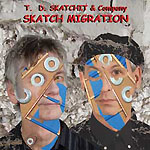 | SKATCH MIGRATION: T.D.Skatchit & co. EDGETONE, San Francisco. (2010) T.D. Skatchit & Company -- that is, the duo of Tom Nunn and David Michalak -- play skatchboxes in trio with various guests, including Tim Perkis (electronics), Kyle Bruckmann (oboe/english horn), Scott Looney (piano), Aurora (voice), Jacob Felix Heule (percussion), Ron Heglin (voice), Doug Carroll (cello), Bruce Ackley (soprano sax), Gino Robair (energized surfaces) and Bob Marsh (voice). |
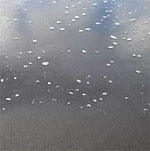 | POGIFF Ulher/Perkis/Robair BUG INCISION, Canada. (2010) The excellent Robair-Ulher tag-team (previous releases on Creative Sources and Rastacan are killers) is here bolstered by the presence of Tim Perkis, frequent Robair collaborator and Bay Area fixture (he's also put in time as a member of the recently-archived League of Automatic Music Composers). The Robair-Ulher discs are sparse and taut, all tension and no release, but Pogiff features a slightly more expansive sound palette, largely due to the nature of Perkis' laptop + electronics contributions. Processed field recordings, subtle electronic grit, and swoops of sound intermingle with Ulher's tight, ultra-controlled, lip-smacking trumpet playing (with radio!) and Robair's trademark approach to analog synth and percussion (his 'voltage made audible' often sounds like, alternately, a computer trying to sound like a field recording of crickets in the night or a dentist's spit-sucking machine). This is a record that demands your attention, constantly bubbling under the surface, trading bluster for little gestures. |
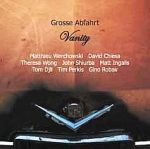 | VANITY Grosse Abfahrt EMANEM, London. (2009) TOM DJLL (trumpet, preparations & electronics), TIM PERKIS (electronics),MATT INGALLS (clarinet, bass clarinet), MATTHIEU WERCHOWSKI (viola, violin), THERESA WONG (cello), DAVID CHIESA (double bass) JOHN SHIURBA (electric guitar), GINO ROBAIR (energised surfaces & voltage made audible). Tom Djll put this electro-acoustic improvising octet together when Matthieu Werchowski and David Chiesa were visiting the San Francisco area, resulting in some performances that are more about the group than the individuals. A duet by the two visitors is also included. 60 minutes. |
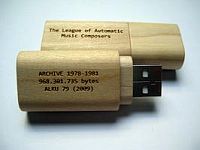 | ARCHIVE 1978-1981: League of Automatic Music Composers. ALKU, Spain. SOLD OUT (2009) Formed in 1977 in the San Francisco Bay Area, The League of Automatic Music Composers (John Bischoff, Jim Horton, Tim Perkis, Paul DeMarinis, Rich Gold, David Behrman) is considered to be the world’s first computer network band/collective. ‘ARCHIVE 1978–1981’ features over 12 hours of previously unreleased archival tapes, documents, interviews and video from these electronic music mavericks. Compiled and edited by Jon Leidecker and presented in a lush limited edition wooden USB flash drive. 968.301.735 bytes worth of computer music history. |
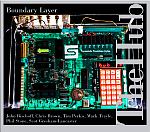 | BOUNDARY LAYER. The Hub. TZADIK New York (2008) A new recording by the band that pioneered laptop ensembles over twenty years ago coupled with an historic overview of their recordings, unreleased tracks and video clips of the band in performance. Functioning in the West Coast tradition of composer as instrument builder—redefining music from the ground up—The Hub makes music using electronic and digital systems of their own devising. A natural extension of the late 1970’s ensemble the League of Automatic Music Composers, the group has performed worldwide over the past two decades and continues to break new ground in the ever-growing laptop medium. This is the definitive document of this important west coast collective and contains recordings covering three decades of activity. Most of this material is being issued here for the first time, much of it has been unavailable for years, and all of it is some of the most imaginative and compelling electronic music ever made. This specially priced 3 CD set includes a deluxe booklet with photos, technical diagrams and written testaments by group members and collaborators giving new insights and historical perspective to one of the most infamous electronic ensembles since Musica Elettronica Viva. JOHN BISCHOFF, CHRIS BROWN, SCOT GRESHAM-LANCASTER, TIM PERKIS, PHIL STONE, MARK TRAYLE. |
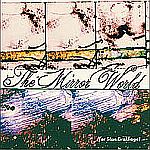 | LARRY OCHS' THE MIRROR WORLD (for Stan Brakhage). Metalanguage (MLX 2007). (2008) with John Schott - el. guitar // Joan Jeanrenaud & Theresa Wong - cellos, effects // Lisle Ellis – bass + circuitry // Ben Goldberg – contra-alto + Bb clarinets // Toyoji Tomita & Jen Baker – trombones, didgeridoos // Darren Johnston & David Bithell – trumpets // Steve Adams – bass flute // Jon Raskin – baritone sax // Tim Perkis & Matt Wright - electronics // William Winant & Gino Robair - percussion // {on tracks 4 + 7 only: Bruce Ackley – Bb clarinet // Moe! Staiano – percussion} // Raskin, Adams, Robair – cues, conducting // Larry Ochs – traffic control. |
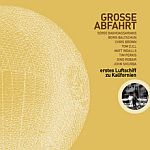 | LUFTSCHIFFE zum KALIFORNIEN Grosse Abfahrt. Creative Sources, Lisbon. (2007) The record of an amazing evening in Berkeley California, a meeting of some of the best of the San Francisco Bay Area improvisors and visiting electronic and electroacoustic sound artists Serge Baghdassarians and Boris Baltschun. Recorded on 10 October 2004 at Berkeley, USA. The personnel: Serge Baghdassarians - electronics; Boris Baltschun - electronics; Chris Brown - piano; Tom Djll - trumpet; Matt Ingalls - clarinet; Tim Perkis - electronics; Gino Robair - electronics; John Shiurba - guitar. Tracks: #1 am anfang zerstörung; #2 interkontinentale luftschiffahrt; #3 morrel remained hopeful; #4 reisenflugzeugabteilung; #5 ein dicker "gas bag". |
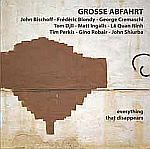 | EVERYTHING THAT DISAPPEARS. Grosse Abfahrt EMANEM, London. (2007) TOM DJLL(trumpet, pocket cornet & preparations), MATT INGALLS (Bb clarinet, bass clarinet), FRÉDÈRIC BLONDY (piano), JOHN SHIURBA (electric guitar), GEORGE CREMASCHI (double bass & electronics), LÊ QUAN NINH (surrounded bass drum), JOHN BISCHOFF (electronics), TIM PERKIS (electronics), GINO ROBAIR (energised surfaces & voltage made audible). Tom Djll put this electro-acoustic improvising nonet together when Frédèric Blondy and Lê Quan Ninh were visiting the San Francisco area, resulting in some extended performances that are more about the group than the individuals. 74 minutes. |
 | The League of Automatic Music Composers 1978- 1983 New World, New York. (2007) John Bischoff, Jim Horton, Tim Perkis David Behrman, Paul DeMarinis, Rich Gold The League of Automatic Music Composers was a band/collective of electronic music experimentalists active in the San Francisco Bay Area between 1977 and 1983. Widely regarded as the first musicians to incorporate the newly available microcomputers of the day into live musical performance, the League created networks of interacting computers and other electronic circuits with an eye to eliciting surprising and new “musical artificial intelligences.” We approached the computer network as one large, interactive musical instrument made up of independently programmed automatic music machines, producing a music that was noisy, difficult, often unpredictable, and occasionally beautiful. The work of the League partook of the distinctive cultural atmosphere of the San Francisco Bay Area in the seventies and eighties, a rich blend of communal ideologies, radical culture, technical innovation, intellectual ferment, and a hands-on attitude that has been a hallmark of California life since the pioneer days. In the air then there was a sense of new possibilities, and the feeling of the need to build a culture from the ground up. For music, specifically, this meant redefining everything about how it’s done, from the instruments and tuning systems to the musical forms, venues, and social relations among players and audiences. —Tim Perkis and John Bischoff |
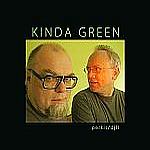 | KINDA GREEN. limited edition OUT OF PRINT. (2007) Tim Perkis and Tom Dill. Digital download now available on Bandcamp. |
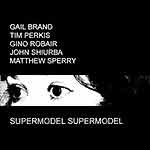 | SUPERMODEL SUPERMODEL (2006) Excerpt from the sleeve notes (by Gino Robair): Around 2001, John Shiurba, Tim Perkis, Matthew Sperry, and I were meeting regularly onstage and in the studio in ad hoc situations. So much so, that it began to feel like we were the house band for the ACME Observatory series at the Tuva performance space in Berkeley, California. When English trombonist Gail Brand visited the Bay Area, I was convinced that this quintet could find some common ground and get to that musical point that I loved the most - where it was difficult to tell which instrument was playing at any given time. As soon as the tape was rolling, the music flowed and we quickly found an ensemble vibe, which continued during additional sessions on Gail’s subsequent visits to the Bay Area. Sadly, on June 5, 2003, Matthew Sperry was struck and killed by a truck while riding his bike to work. The tragic event was devastating to us, both personally and musically. As a tribute to Matthew, we gathered once more - this time as a quartet - for one final recording session. GAIL BRAND trombone; TIM PERKIS electronics; GINO ROBAIR percussion, faux dax, horns, Styrofoam, ebow snare; JOHN SHIURBA electric guitar; MATTHEW SPERRY double bass and preparations. On EMANEM (UK). |
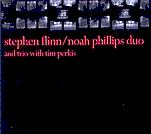 | Square Circle (2006) The debut release from the Stephen Flinn - Noah Phillps Duo and trio with Tim Perkis is a collection of adventurous spontaneous improvisations. Stephen Flinn (drums, junk percussion) Noah Phillips (electric guitar) Tim Perkis (electronics). Buy it at CD Baby. Four Stars! Slipping this series of atypical improvisations into the envelope of a category is not an easy task. What on paper reads as a guitar/drums duo is actually a mousetrap game of unpredictable sonorities taking their shape from basic elements - Phillips' chordal tapping or Flinn's lumpy snare rolls, just to name a couple - then planting uncertain roots in the quicksands of electronic modification (by Tim Perkis, who joins the duo in several tracks). The musicians deliver the "right" energetic mass from the rust of excessive prankishness, like scientists winking to each other after reaching an interesting result; the strange atmosphere generated by some of these conversations belies the accurate pondering that an expert ear will surely perceive in the large part of "Square circle". Abstract propulsion and bulldozing methodology are parts of a complex vocabulary of adventurous sapience and inquisitive sonic exploration championed by Flinn and Phillips with scrupulous application. -- Massimo Ricci, Touching Extremes |
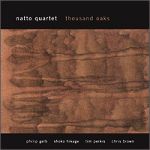 | Thousand Oaks (2005) Critics called Natto Quartet's April 2003 debut, Headlands, "exotic, exquisitely crafted, and eye opening" (Signal to Noise) and "music for our time" (AllAboutJazz.com), with The Wire's Bill Shoemaker noting, "each sound has the self-contained integrity of a stroke of masterful calligraphy." Thousand Oaks further documents the group's singular approach to finding common ground for collective improvisation with instruments from otherwise disparate eras, cultures and musical genres. The music is captured in a beautiful recording by Philip Perkins in Berkeley's legendary Maybeck Studio, a room long prized for its superb acoustics. Musicians: Philip Gelb (shakuhachi), Shoko Hikage (koto), Tim Perkis (electronics), Chris Brown (piano). On 482 Music. BUY ONLINE. |
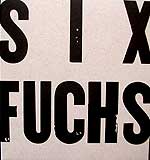 | Six Fuchs Rastascan San Francisco. (2004) Group improvisations from 5 bay area improvisors and visiting German saxophonist/clarinetist Wolfgang Fuchs. "...really HEARTENING to hear someone release such fantastically unironic, nonpostmodern, vital SWINGING music -- which isn't looking back at any sepia image of cool." -- Ben Watson, Resonance Radio, London. Accompanying Fuchs are Tom Dill(tpt), Gino Robair(perc), John Shiurba(gtr), Matthew Sperry(bass), and Perkis(electronics). |
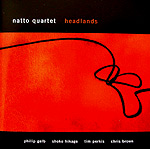 | Headlands 482 Music Chicago (2003) by the Natto Quartet. Recorded live at the Headlands Center for the Arts, Sausalito, CA, August 12, 2002 The debut recording by the San Francisco Bay Area's Natto Quartet, Headlands features seven freely improvised works created by the group's unique instrumentation of shakuhachi, koto, piano, and live electronics. By collectively leaving the traditional and cultural roles of their acoustic instruments behind, shakuhachi player Philip Gelb, koto player Shoko Hikage and pianist/electronic musician Chris Brown, join live electronics pioneer Tim Perkis in finding common ground in the extended and experimental technique associated with improvised music. The result is a beautiful and elastic music that creatively juxtaposes old and new, acoustic and electric, and tradition and innovation. "...truly new music unlike anything I've ever heard, a strong candidate for best avant project of 2003, and sure to turn many a global thinking, progressive minded ear inside out." — Michael G. Nastos |
 | Apollo and Marsyas (2002) An anthology of New Music Concerts at Het Apollohuis, Eindhoven, The Netherlands, from 1980-1997, including performances by The Hub and 37 other new music luminaries. Released by Het Apollohuis (Eindhoven, The Netherlands.) |
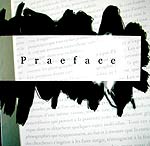 | Praeface (2002) Tracing various intersections of genres from improvisational jazz to plunderphonic electronics to field recordings, diverse splinters and fragmented roots sprout off into calm matrixes of sound. From Japan (Haco) through New York (The Gold Sparkle Band) to Italy (Mou, Lips!), the sounds merge in San Francisco. Pioneers of networked computer music (Tim Perkis) mix with modern masters (Wobbly), alongside unheard musicians and odd collaborations. Avant-jazz damaged blues sparks drum and bass roots to forage in an electrostatic world. Praemedia, (San Francisco). |
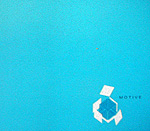 | Motive (2002) From the Praemedia website: Tim Perkis is one of the pioneers of computer music. A founding member of the first network computer music group, The Hub, along with Chris Brown, John Bischoff, Scot Gresham-Lancaster, Mark Trayle, and Phil Stone, as well as an accomplished computer improviser. This release finds Tim tackling the developments of modern electronic music, including the wide and debated field of IDM. Originally completed in 1999 and released via MP3 on the Artifact Records website, we present it to you now in its clearest form. On Praemedia (San Francisco). |
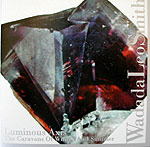 | Luminous Axis Tzadik New York. (2002) by Wadada Leo Smith. In his sixth Tzadik release he once again explores new territory, bringing five absolute masters of live electronics together to perform some of Wadada's most adventurous and colorful compositions. On computer-driven electronics: John Bischoff, Chris Brown, Ikue Mori, Tim Perkis, Mark Trayle. On trumpet and flugelhorn: Wadada Leo Smith. On percussion: William Winant. |
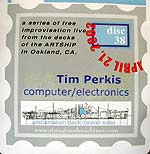 | Artship Disc 38: Tim Perkis Live on the Artship (2002) The Artship Recordings are a series of live solo improvisations each by a different artist, and each performed in "The Artship", a decommissioned US Navy troop transport which was docked in Oakland and served as a floating arts center for several years. The series consists of over 50 releases, all on small (3-1/2") CDs. My performance was on a covered outdoor deck, giving a nice blend of rich echoes and sounds of the harbor on a spring saturday: flapping sails and seagulls, mixed in with live electronic music. |
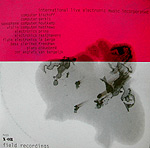 | International Live Electronic Music Incorporated Xor Den Haag. (2000) Recorded at the Korzo Theater, Den Haag on 9 April 1998. Solo and duo pieces with John Bischoff; other artists on the disc include Gert-Jan Prins, Luc Houtkamp, Kaffe Matthews and Anne LaBerge. |
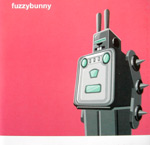 | Fuzzybunny Sonore Bordeaux & Tokyo.(2000) American electronic improvisers ensemble that features three of the most energetic hackers in computer-sound research and innovation for more than two decades: Tim Perkis, Scot Gresham-Lancaster and Chris Brown. Each musicians retains his autonomy but can also decide to intervene and influence the others. Surprising, aleatoric and full of irony. |
 | What Would This Record Have Sounded Like of John Cale had had Some Setback and Cinzia La Fauci and Alberto Scotti had Taken His Place? (2000) Compilation of Iggy Pop covers by various artists including: Perkis, Etoile Filante, Solex, Taniguchi Masaaki, Ectogram, Steven Bryant, Jonathan LaMaster/Roger Miller, Frank Chickens, Crowded Air, Oxbox, Allun, God is my Co-pilot, Dean Roberst, Massey Fergusson Ensemble, The Pornography, Culo Negro and Mutable. A co-production of Snowdonia (Messina, Italy) and Club Lunatica (Toyko). |
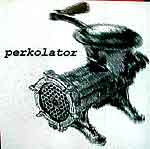 | Perkolator Limited Sedition Oakland.(1999) Pieces all made by mangling live recordings of improv ensemble sessions in which I played my usal live computer/synth rig. The "manglings" themselves are edited live performances on a sample processing instrument I built using Max/MSP. Musicians sampled include Henry Kuntz, Matt Ingalls, Gino Robair, John Shiurba, Ed Hermann, Dave Slusser, and Matthew Sperry. |
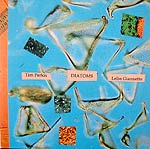 | Diatoms Curva MinorePalermo. (1999) Duo improvisations with Lelio Giannetto, bass. Recorded in Palermo, Sicily 12/5/1998. |
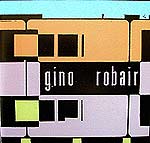 | Buddy Systems Meniscus Minneapolis. (1998) Gino Robair plays selected duos and trios, with John Butcher and Tim Perkis, Otomo Yoshihide, Carl Kihlstedt and Matthew Sperry, Dan Plonsey, LaDonna Smith, Splatter Trio, Oluyemi Thomas, and Myles Boisen |
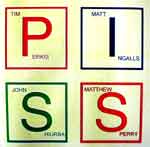 | PISS Limited Sedition Oakland.(1998) quartet improvisations with Perkis, Matt Ingalls (clarinet, violin), John Shiurba(guitar), Matthew Sperry (bass). |
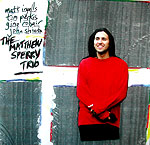 | Matthew Sperry Trio Limited Sedition Oakland. (1997) Actually a quartet, that didn't include the late Matthew Sperry! Matt Ingalls, Tim Perkis, Gino Robair, John Shiurba. |
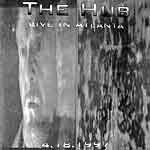 | The Hub: Live in Atlanta Georgia Tech PTRL Atlanta. (1997) A live multimedia performance, in an auditorium equipped with ethernet connections at every seat. Audience members with laptops could connect to a website allowing them to vote to influence the direction of the live performance. |
 | FiveLucky Garage Berkeley. (1995) Solo violin improvisations. 7" vinyl, 33rpm. |
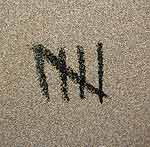 | Limited Edition version of Five (see above.) (1995) This version was packaged in a hand-made sandpaper sleeve. |
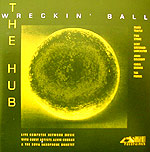 | Wreckin' Ball Artifact San Francisco. (1994) The Hub's second album. Includes collaborations with Ramon Sender, Alvin Curran and the ROVA Saxophone Quartet. See artifact for details. |
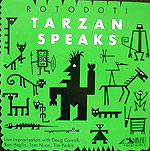 | Tarzan Speaks Artifact (1991) w/ group Rotodoti: Doug Carroll (cello); Ron Heglin (trombone, voice); Tom Nunn (electroacoustic percussion); Tim Perkis (electronics). On (San Francisco). |
 | Artificial Horizon Artifact San Francisco. (1989) Individual and duo tracks with John Bischoff. On artifact. |
 | The Hub Artifact (1989) Original album by the legendary Hub: JOHN BISCHOFF, TIM PERKIS, CHRIS BROWN, SCOT GRESHAM-LANCASTER, MARK TRAYLE, PHIL STONE. THE HUB is a computer music band whose members are all designers and builders of their own hardware and software instruments. The group electronically coordinates the activity of their individual systems through a central micro-computer, The Hub itself, as well as manually through ears, eyes, and hands. See artifact for details. |